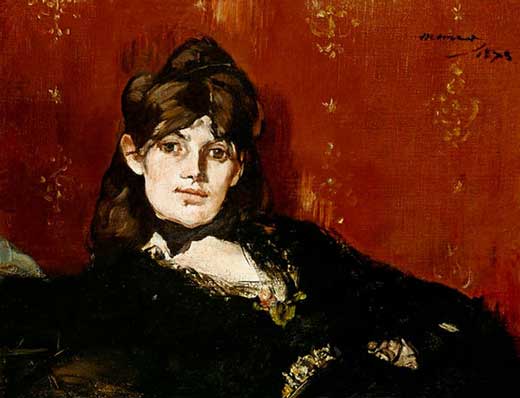|
|
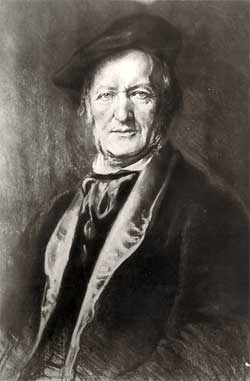 The definitive form of musical drama appears very early with Richard Wagner. Born in Leipzig in 1813, provided with an outstanding intellectual education, exiled from Germany in 1848, received in Triebschen by the Wesendoncks, Mathilde Wesendonck becomes very early the composer’s inspiress : the poem then assumes its proper literary worth; the music blends with the movement of the word and of the action like the swell accompanying the wave. Since everything must be heard by reason of the laws which govern the progress of speech, articulated diction is imperative for the singers at the risk of producing the famous “Bayreuth bark” much deplored by Wagner himself. Each scene develops in superb harmony recalling the polyphonic structures of Bach, the instrumentation is invested with a suppleness, a shine, a splendour so far unheard. The orchestra, from simply accompanying the singing, comes to the fore, it now comments on the sung word and penetrates deep inside the beings. Guiding threads, called “leitmotifs”, (leitmotiv) direct us into the badly lit depths of the most troubled sentiments which the poet-musician explores in our company.
No doubt that in this evolution characteristic of Wagner’s genius, Mathilde Wesendock played a decisive part, she who had placed Rienzi in a discussion with the actress Minna Planer, before the master, among the productions unworthy of him ; which led Wagner to write to Liszt (4 March 1854) ; “My way of conceiving of the relation between the spoken verse and music has been entirely modified ... I am, now, at a stage of development which has caused me to change directions completely.” It is therefore under these conditions that Wagner will write his Tristan und Isolde, an opera whose prodigious finale unfolds in the well-known “transfiguration”. (On this subject see our book Tristan et Iseut / Tristan & Isolt - Moscow IMA Press 1994 -Tristan und Isolde / ADG-Paris).
This esthetic principle, as important as that of the means of indirect poetic ex
Following Baudelaire, Mallarmé will have the most decisive influence in the Wagner affair and to the end, he will remain a fervent advocator of the wagnerian music. During the time of intellectual freedom as granted by Janson de Sailly, the “miserable faraway lycée” (fifteen minutes from his house by local train, to which five minutes on foot have to be added) and the other establishments where he served for and against the inspectorate general, the badly informed families and a difficult state of health (“For thirty years, without fail, he accomplished this heavy task”, his daughter Geneviève notes with bitterness), Stéphane Mallarmé will assiduously frequent the Lamoureux or Pasdeloup concerts, collaborate with Verlaine at “La Revue Wagnérienne”, acclaim the noble attitude of Nerval, Banville, Villiers de l’Isle-Adam, Catulle Mendès, Judith Gautier, who went on the pilgrimage to Bayreuth, speak about Garnier’s Opera which was due to be inaugurated on 5 January 1875, insisting that a French composer should be chosen for that occasion, failing which, he adds, “only one thing could be done : definitely take Tannhäuser and by an extraordinary display of glory avenge him for the insult formerly done in the name of France by about a hundred louts”, and the Poet adds, courageous but objective “an even more impossible solution, since the arms, since Alsace, since the blood !” Concerning the theory of an esoteric interpretation of Wagner, dear to the occultist Symbolists, Mallarmé will keep prudently silent, but he accepts the one of the synthesis of the arts and their techniques and the one of correspondences. He will even go as far as adding that the renaissance of the theatre will come from dancing, dumb par excellence but directed by the poet whose poem will be written out between the dancer’s steps, thus realizing the synthesis of poetry and of music with the plastic vision. (Prélude à l’ après-midi d’ un Faune / Mallarmé / Debussy.)
Final analogy Wagner/ Mallarmé in this dialogue “animus/ anima” : the women. Their names will be Schoeder-Devrient, Minna Planer, Mathilde Maier, Jessie Laussot, Cosima Liszt, Judith Gautier, Marie, Méry Laurent or Berthe Morisot whose fiery look in Manet’s canvas evokes the immortal Carmen of his neighbour Bizet, in Bougival; these inspiresses or muses surrounded by a pleiad of beaux esprits or artists without whom nothing would have been possible : Renoir, Degas, Monet, von Lenbach or others ; all at the same time and individually , all things considered and at the end of the quest, Kundry, Elsa, Elisabeth, or Isolde... Here begins another story.
Note : Cf : Tristan et Iseut / Tristan & Isolt - Moscow IMA Press 1994 - Tristan und Isolde / ADG-Paris / Übersetzung : Dagmar Coward Kuschke - Tübingen Translation : Dagmar Coward Kuschke (Tübingen) |
ADG-Paris © 2005-2024 - Sitemap





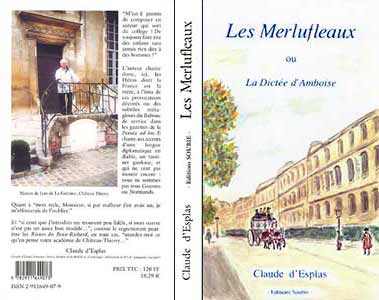
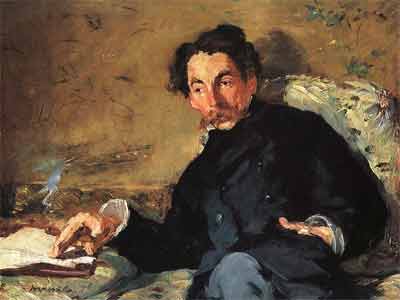
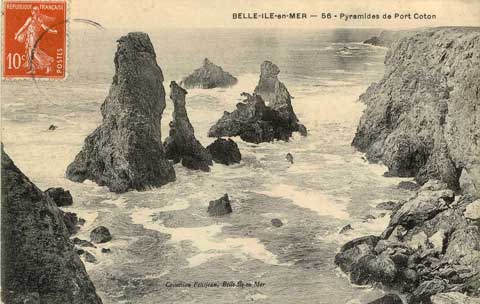
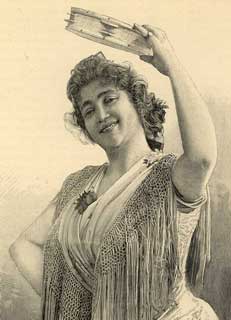 Mallarmé will also recognize having used the “little” synthesis concerning the technical means of poetic ex
Mallarmé will also recognize having used the “little” synthesis concerning the technical means of poetic ex